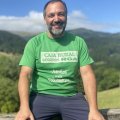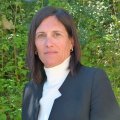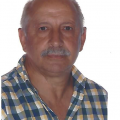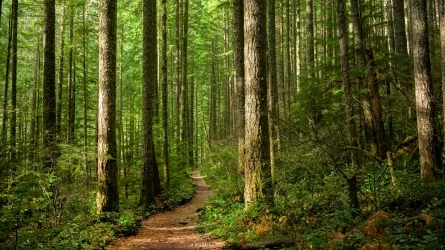Mercados de carbono basados en la Gestión Forestal Sostenible
Manage existing forests to further and truthfully increase their capacity to fix and store carbon. Offset our carbon footprint with that promoted increase. Add to the timber market the possibility of another additional market.
Description
In addition to the natural carbon dioxide (CO2) emissions occurring on Earth, human activities have caused, and are causing, a very large increase in the concentration of CO2 in the atmosphere.
This increase of CO2 in the atmosphere is generating serious climate change problems all over the planet, which endanger not only the stability of current ecological ecosystems, but also the very subsistence of human beings.
Sustainable forest management intervenes in one of the few carbon sinks we have on earth: forests. Improving and maintaining them can thus help us not only to mitigate climate change, but also to adapt properly to its effects.
To address the atmospheric CO2 problem by taking into consideration the opportunity offered by forests, carbon markets are being established. These markets seek to build a bridge between the entities and individuals that emit CO2 into the atmosphere and the entities and individuals that absorb CO2 from the atmosphere into the forests and the wood they provide: a voluntary market where the parties transfer rights to that carbon and consequent economic endowments to each other.
The implementation of such carbon markets often involves grey areas where there may be uncertainty about their functioning and reliability. Advanced scientific and technological implementation and a methodology that verifies the actual achievement of the objectives are necessary. Not just anything applied in any old way will do.
Moreover, these implementations of carbon markets must be adjusted to the forestry reality of each site. In a landscape with as much forest use as the Basque Country, the margin for increasing carbon fixation in the atmosphere through the usual change of land use and without generating a conflictive imbalance with respect to the also necessary food production or urban and industrial use, is very limited. In our case, the key to boosting and improving climate change mitigation lies in deepening sustainable forest management.
In this Course, we will first look at the generic concepts of climate change, the implications of forests with and in the face of climate change, and the possibility of implementing carbon markets in this regard. Subsequently, the concrete implementation in the Basque Country of a carbon market based on sustainable forest management will be analysed.
Objectives
To analyse the generic concepts of climate change, the implications of forests with and in the face of it and the possibility of implementing carbon markets in this respect.
To analyse the concrete implementation in the Basque Country of a carbon market based on sustainable forest management.
Activity directed to
- All public
- University student
- Students not from university
- Teachers
- Professionals
- Forest owners and managers; Industry and entities interested in offsetting their carbon footprint.
Methodology
Traditional presentations through experts in the field.
At the end of each presentation, there will be a space for participants to ask questions.
Each day will end with a long conversation between speakers and participants.
Program
15-07-2024
Registro
Presentation by the Director of the activity
- Juan Ramón Murua Mujika | Basoa Fundazioa - Presidente
- Leire Salaberria Isasi | Unión de Selvicultores del Sur de Europa (USSE) - Directora gerente
- Aitor Onaindia Bereziartua | Basoa Fundazioa - Director técnico
“El cambio climático“
Cambio climático: ¿avanzando con ruedas cuadradas?
- Ricardo Francisco García Herrera | Universidad Complutense de Madrid - Catedrático de Física de la Atmósfera
“Los bosques frente al cambio climático“
Impactos observados y esperados del cambio climático en los sistemas forestales y herramientas de adaptación. Potencial de mitigación del cambio climático a través del sector forestal.
- Rafael Calama Sainz | Instituto de Ciencias Forestales del INIA-CSIC - Científico Titular en el Departamento de Dinámica y Gestión de los Sistemas Forestales
Pausa café
“Mercados de carbono y la gestión forestal“
Mercados de carbono y la gestión forestal- desafíos y oportunidades
- Alicia Ledo Álvarez | Autónoma - Científica y consultora freelance
“Aspectos a revisar de los mercados de carbono“
Exigencias y condicionantes de la certificación de carbono que se están elaborando a nivel europeo, a la luz de los marcos existentes: transparencia y confianza en la cualidad de los proyectos, reclamos finales asociados y mecanismos de verificación
- Hortense Wiart | Federación de los propietarios forestales franceses (FRANSYLVA) Services - Responsable de Carbono y Servicios forestales
Round table: “Implantación de los mercados de carbono“
- Ricardo Francisco García Herrera | Universidad Complutense de Madrid - Catedrático de Física de la Atmósfera
- Rafael Calama Sainz | Instituto de Ciencias Forestales del INIA-CSIC - Científico Titular en el Departamento de Dinámica y Gestión de los Sistemas Forestales
- Alicia Ledo Álvarez | Autónoma - Científica y consultora freelance
- Hortense Wiart | FRANSYLVA Services - Responsable de Carbono y Servicios forestales
- Leire Salaberria Isasi | Unión de Selvicultores del Sur de Europa (USSE) - Directora gerente
Synthesis
16-07-2024
“Oferta de créditos de carbono“
Implementación de los criterios QUALITY del reglamento europeo de secuestro de carbono mediante la simulación basada en procesos.
- Laura Blanco Cano | Universidad Politécnica de Valencia (UPV) - Técnico del grupo de investigación ReForest y estudiante de doctorado en Ingeniería del Agua y Medioambiental
“Demanda de créditos de carbono“
- Inmaculada Astorkiza Ikazuriaga | Universidad del País Vasco (UPV/EHU) - Subdirectora de Internacionalización y Comunicación de la Escuela de Doctorado
Pausa café
“Verificación del mercado de carbono“
Hacia la Certificación PEFC de Carbono: midiendo el impacto positivo de la Gestión forestal sostenible
- Esperanza Carrillo Galán | PEFC - España - Responsable RSC y Nuevos mercados
“Soportes para un mercado de carbono“
Herramienta para la Implantación de un mercado del carbono fijado con la Gestión Forestal Sostenible
- Jose Antonio Sudupe Unanue | ELKARMEDIA S.L. - Director
Round table: “Implantación de un mercado basado en la GFS en Euskadi (Basoko sistema)“
- Laura Blanco Cano | Universidad Politécnica de Valencia (UPV) - Técnico del grupo de investigación ReForest y estudiante de doctorado en Ingeniería del Agua y Medioambiental
- Inmaculada Astorkiza Ikazuriaga | UPV/EHU - Subdirectora de Internacionalización y Comunicación de la Escuela de Doctorado
- Esperanza Carrillo Galán | PEFC - España - Responsable RSC y Nuevos mercados
- Jose Antonio Sudupe Unanue | ELKARMEDIA S.L. - Director
- Aitor Onaindia Bereziartua | Basoa Fundazioa - Director técnico
Synthesis
Directors

Aitor Onaindia Bereziartua
Basoa Fundazioa
Descended from a Basque family of baserritarras (farmers), he has been involved in the practice of agricultural, livestock and forestry management since he was a child. After several years studying and working as a forestry engineer in universities and organisations abroad (France and Chile), he has spent the last few years immersed in the development of sustainable forest management in the Basque Country. Since joining Basoa Fundazioa, now in his role as technical director, he has been disseminating both science and forest management and promoting and boosting the development of various projects aimed at innovating the Basque forestry sector and promoting and compensating for the multiple ecosystem services that forests offer society.

Leire Salaberria Isasi
Unión de Selvicultores del Sur de Europa (USSE)
Aunque de formación sea abogada mercantilista internacional, pertenece a una familia de tradición forestal, y desde el 2014, es la Directora-Gerente de la Unión de Selvicultores del Sur de Europa (USSE), organización internacional de propietarios forestales privados cuya actividad primordial es la de contribuir a la definición de la política forestal europea e internacional, mediante la toma de posición, representación y diálogo intersectorial, en foros internacionales relevantes aportando la perspectiva y demandas de los bosques del sur de Europa en los foros de decisión, —Unión Europea, FOREST EUROPE, Naciones Unidas, COFO-FAO— así como a través del dialogo y la cooperación con otras organizaciones del sector.
Speakers

Inmaculada Astorkiza Ikazuriaga
UPV/EHU
Licenciada en Ciencias Económicas y Empresariales por la UAB y Doctora en Economía por la UPV/EHU. Ha participado y/o dirigido numerosos Proyectos de Investigación nacionales e internacionales. También es autora de numerosas publicaciones en libros y revistas de prestigio internacional. En la actualidad es Subdirectora de Relaciones Internacionales y Comunicación de la Escuela de Doctorado (DOKe) de la UPV/EHU (Oct 2019 - …), con anterioridad ha sido responsable del Programa de Doctorado en Integración Económica (Feb 2017 – Mar 2020), así como Evaluadora de la agencia de calidad UNIBASQ/ENQA (2013-2015).

Laura Blanco Cano
Biologist from the Complutense University of Madrid, with two postgraduate degrees in Geomatics, Remote Sensing and Spatial Modelling applied to Forest Management and in Environmental Management, both from the University of Cordoba. She has worked in the field of environmental consultancy and has participated in two national R+D+I projects. She is currently working for the LIFE ADAPT-ALEPPO project and is a PhD student in the area of eco-hydrology at the Polytechnic University of Valencia.

Rafael Calama Sainz
Forestry Engineer and Dr. Forestry Engineer from the UPM. Senior Scientist at ICIFOR, INIA-CSIC since 2006. Coordinator of the Dynamics, Modelling and Forest Management research group at ICIFOR (2023-2024), and head of the Forestry group at INIA (2011 and 2016). His main lines of research focus on the dynamics and regeneration of forest systems, forest adaptation to climate change, modelling of the C uptake capacity of different forest compartments and non-timber production. He is the author of more than 85 SCI articles, 35 books or book chapters, and more than 100 communications in national and international meetings. A relevant part of his research activity has focused on the development of tools to support forest management, such as production tables, growth models and silvicultural schemes. He has collaborated in the drafting of forest adaptation plans at European, national and regional level. He has participated in more than 25 research projects, having been principal investigator in nine of them, including the MITECO-INIA project "Climate change and atmospheric carbon sinks”.
Head of Corporate Social Responsibility and New Markets at PEFC Spain. Degree in Environmental Sciences and Master in Environmental Management and Quality. With experience in various projects on climate change, circular economy, biodiversity and responsible consumption from the forestry sector.

Ricardo Francisco García Herrera
He is currently Professor of Atmospheric Physics at the Complutense University of Madrid. A specialist in Climatology, his research includes the analysis of weather and climate extremes, the reconstruction of the climate of the last 500 years and the patterns of climate variability in the troposphere. He is co-author of more than 200 articles in scientific journals. He has coordinated international and national research projects and has supervised 15 doctoral theses. He has been president of the State Meteorological Agency, member of the Executive Committee of the World Meteorological Organization and Contributing Author and reviewer of the 4th IPCC report. He has represented Spain in various international committees.
Forest Engineering Doctor, scientist and consultant; specialising in estimating carbon sequestration and greenhouse gas emissions. For more than ten years I worked in different universities and international research centres, and currently I work as a freelance consultant. I use the knowledge and skills acquired during those years to address real challenges and seek solutions rooted in scientific evidence. One of my main activities is the quantification of carbon, nitrogen, biomass and greenhouse gas balances in forest and agricultural systems. For this, I not only use existing methodology, but also develop new models and methods. In addition to my technical speciality, I also assist in the design of sustainability strategies with a special interest in the qualification and valorisation of natural capital; as well as in the development of climate change mitigation plans based on natural solutions.

Juan Ramón Murua Mujika
UPV-EHU
Doctor en Ciencias Económicas y Empresariales por la UPV/EHU. Ha sido docente durante muchos años en la facultad de Economía y Empresa de esta misma universidad. Además, ha realizado estancias tanto en la Universidad de California como en el Centro de Estudios Vascos de la Universidad de Nevada. Su actividad investigadora se ha centrado principalmente en el ámbito de la Economía Regional y Local, Economía agraria y Forestal, Usos del Suelo y Demografía Espacial. En este sentido, ha participado en importantes publicaciones, congresos y comités ligados con el ámbito rural, el sector de la madera y la gestión de los bosques.

Aitor Onaindia Bereziartua
Basoa Fundazioa
Descended from a Basque family of baserritarras (farmers), he has been involved in the practice of agricultural, livestock and forestry management since he was a child. After several years studying and working as a forestry engineer in universities and organisations abroad (France and Chile), he has spent the last few years immersed in the development of sustainable forest management in the Basque Country. Since joining Basoa Fundazioa, now in his role as technical director, he has been disseminating both science and forest management and promoting and boosting the development of various projects aimed at innovating the Basque forestry sector and promoting and compensating for the multiple ecosystem services that forests offer society.

Leire Salaberria Isasi
Unión de Selvicultores del Sur de Europa (USSE)
Aunque de formación sea abogada mercantilista internacional, pertenece a una familia de tradición forestal, y desde el 2014, es la Directora-Gerente de la Unión de Selvicultores del Sur de Europa (USSE), organización internacional de propietarios forestales privados cuya actividad primordial es la de contribuir a la definición de la política forestal europea e internacional, mediante la toma de posición, representación y diálogo intersectorial, en foros internacionales relevantes aportando la perspectiva y demandas de los bosques del sur de Europa en los foros de decisión, —Unión Europea, FOREST EUROPE, Naciones Unidas, COFO-FAO— así como a través del dialogo y la cooperación con otras organizaciones del sector.

Jose Antonio Sudupe Unanue
Computer engineer with a vocation as an entrepreneur, she belongs to the so-called generation X, who are the first digital natives and have lived through the arrival of the Internet, which is why they adapt so easily to change. - First phase of work experience as a teacher at Goierri Ikastola. - From 1989 to 1994, working as an innovation agent and trainer in the Iraurgi Lantzen S.A. development agency. - In 1994 he began his career as an entrepreneur, providing business management solutions to companies in the region. - In 1996 he founded the company ELKARMEDIA S.L. - Today CEO of ELKARMEDIA S.L., leading, managing and exploiting projects of "Development of software and web applications creating experiences and transforming the environment”.

Hortense Wiart
Responsible for the development of Carbon and Environment services for the members of the FRANSYLVA Federation, the only organisation representing all French forest owners. He also monitors carbon market issues at European level through CEPF, the European Confederation of Forest Owners. These services mobilise private and public funding bodies to strengthen the dynamics of forest renewal. It also participated in the creation of the Canopée Challenge innovation competition for the forest and wood industry, initiated by the Forinvest investor network.
Summary
Conclusions sent by the direction of the Summer Course
Sustainable development goals
Agenda 2030 is the new international development agenda approved in September 2015 by the United Nations. This agenda aims to be an instrument to favour sustainable human development all over the planet, and its main pillars are the eradication of poverty, a reduction in equality and vulnerability and fostering sustainability. It is a unique opportunity to transform the world up to 2030 and guarantee human rights for all.

9 - Industry, innovation and infrastructure
Texto ods pendiente. Lorem ipsum dolor sit amet.
Añadir link11 - Sustainable cities and communities
Texto ods pendiente. Lorem ipsum dolor sit amet.
Añadir link12 - Responsible consumption and production
Texto ods pendiente. Lorem ipsum dolor sit amet.
Añadir link









